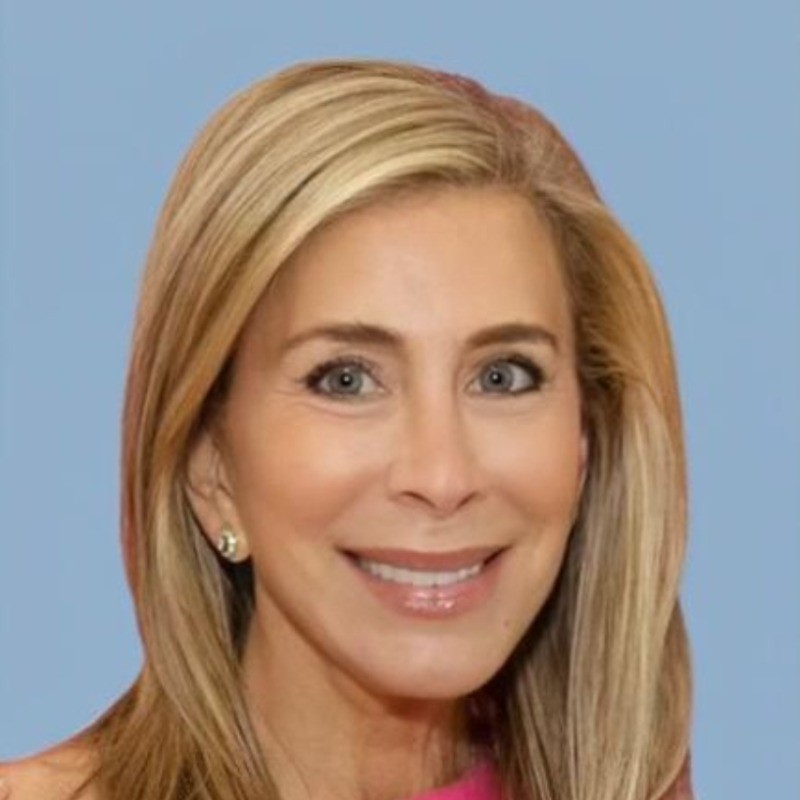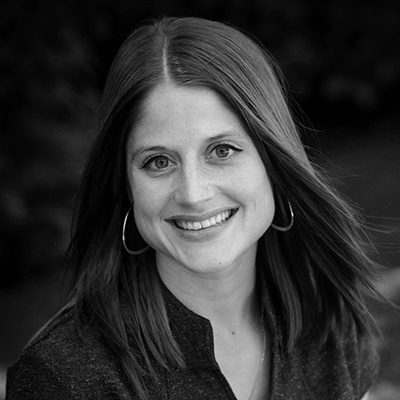In a time where healthcare faces unprecedented challenges, The Leadership Development Group is working as a partner in transforming how healthcare leaders navigate complexity and drive positive change.
“Our vision is to create a more interconnected and equitable health ecosystem,” says Tracy Duberman, who founded the global talent development consultancy in 2008 and serves as its president and CEO. “To that end, we focus on innovative ways to develop leaders who can be collaborative change agents across the various sectors of the health ecosystem.”
This vision has become increasingly vital as healthcare organizations grapple with enhancing patient experiences, reducing cost of care, optimizing value and improving overall population health.
Everything is bespoke
Unlike traditional leadership development firms, TLD Group’s approach is specifically tailored to address the unique challenges facing leaders within various healthcare sectors — from providers and payers to manufacturers and regulators. They offer four primary talent and leadership development solutions, including executive coaching, cohort development, senior team development and succession planning.

All of this is facilitated by the organization’s core leadership team of seven, headquartered in the New York metropolitan area, and supported by six advisory board members and a faculty of more than 200 coaches, consultants and academicians worldwide.
TLD Group leadership is driven by its mantra: Our Values Create IMPACT. This comprises innovation — using creativity and imagination to drive solutions to meet and anticipate the industry’s most pressing needs; mindfulness — bringing focused attention to all client engagements; passion — approaching the work with unbridled spirit and uncompromising determination to achieve impactful results; agility — acknowledging that one size does not fit all and being ready to flexibly adjust and realign when needed; curiosity — constantly challenging themselves and their clients to understand more, stretch more and develop more; and teamwork — partnering closely with clients to co-create, customize and deliver high-quality solutions.
Qualenta Kivett, executive vice president, chief people and talent officer at Tampa General Health System, speaks in particular to the team’s aforementioned agility and passion: “One of the things I find helpful and advantageous in working with Tracy and her team is the ability to be agile. There are certain things we need that other organizations may not be doing, or vice versa. Even with TLD Group’s growth, they’ve been able to be agile, attentive and really adjust for our culture. It’s obviously a passion, not only for Tracy, but for her team.”
The bespoke strategies developed for TLD Group’s clients are also something the firm holds close to its heart, an integral piece of its commitment to enhancing leadership capabilities in the health ecosystem. Steve Leduc of Takeda, a longtime partner of TLD Group, echoes this sentiment.
“I always feel like I have access to TLD Group’s team and that they really understand Takeda — that they actually care about the particular value we bring,” says Leduc, who leads the learning, organizational development and talent management components of the research and development organization at the multinational pharmaceutical company. “And they don’t hesitate to push back, which is the value that I need. I don’t need order takers; I need thought partners. And Tracy and the rest of her team provide that thought partnership.”
Supporting programs at Takeda
TLD Group’s partnership with Takeda is a prime example of the firm’s unique ability to navigate the varying complexities of healthcare organizations as well as customize their solutions to meet individual organizational needs. In Takeda’s case — specifically, its Research and Development Organization — TLD Group initially worked with the pharmaceuticals company to offer executive coaching for Takeda leaders.
“I was fortunate coming into Takeda — I inherited the relationship with TLD Group from my predecessor, who had begun working with them to help with executive coaching for our leaders,” Leduc says. “The uniqueness of what TLD Group offered is they would help to do a lot of the intake brokering, but a much more personalized level of service to understand our needs. And with their niche specialty in understanding the healthcare and life sciences marketplace from a coaching perspective, it was much easier for me to interact with individuals on TLD Group’s team and faculty of coaches and consultants to create the right solution for each of my executives’ needs.”
The partnership with TLD Group has also been effective in leader onboarding for new executives coming into Takeda, Leduc says.
“The value of TLD Group’s new leader onboarding is that they actually understand our institution. They understand the peculiarities of our culture and the particular needs of the R&D organization.”
In addition to coaching, new leader onboarding and team development services, one of the most important elements of Takeda’s work with TLD Group includes the launch of a unique offering called the Achieve Program, a cohort-based leadership development program tailored for mid-level leaders that was launched about five years ago. The program is currently heading into its sixth cohort, with about 25-30 individuals joining each cohort. The cohorts kick off in November, with a capstone process in June, and each cohort involves an experiential learning component that is related to a particular project or problem being experienced by the R&D leadership team.
“I need thought partners. And Tracy and the rest of her team provide that thought partnership.”
Steve Leduc
“Cohort five recently worked on creating a solution for better integrating AI into our R&D organization,” Leduc says. “At a company level, we’ve got some proprietary AI tools that we’re trying to position correctly in the institution. All that’s well and good technologically, but then somebody’s going to have to actually sit down and use it. So, the challenge for this cohort was to determine: How can the organization build a mindset to embrace and use AI?”
The cohort was broken into four teams to take a look at different aspects of the AI implementation, and during the capstone, the participants were asked to produce and offer their recommendations.
“All the while, there’s a set of action learning and executive coaches that work in tandem with each team, the executive coach working with each participant on their individual leadership goals and the action learning coach facilitating teams to work together to resolve the challenge,” Leduc says. “The participants learn vital team leadership and team membership skills, such as agenda setting and tracking, how to play the devil’s advocate role, timekeeping and collaborative communication. The participants apply those team development skills in real time.
“The individual executive coaching is wonderful because as ‘early in career’ leaders, for many it’s the first time they have been exposed to coaching,” Leduc continues. “And I have to get ahead of it because every year when the program ends, they ask, ‘Can we keep our coaches?’ They just get tremendous value. The coaches are super experienced, some of the same coaches we use for our senior-level executives. And they’re influencing our leaders at a really critical juncture in their careers.”
Takeda receives positive feedback on its Achieve Program, both anecdotally and statistically. The retention rate for Achievers is more than 90 percent, and the promotion rate is about 50 percent.
“This program is keeping our talent in this organization, and they’re benefiting by being promoted and then being able to grow within the institution and continuing to serve,” Leduc says.
Instrumental partnership with Tampa General Health
Tampa General Hospital also has taken a proactive approach to supporting and developing its people with the support and partnership of TLD Group.
Kivett explains that when she joined the organization in 2021, the priority was addressing high turnover and reinvigorating the employee experience: “When I joined, in the midst of COVID, we were seeing the highest rate of people leaving the healthcare industry. So our biggest challenge was getting to the root cause of why people were leaving, what we could do to not only ensure that we could hire and retain, but really going back to the humanistic components. What are the individual needs? How do we create that transparent conversation?”
TGH’s response included open communication from leadership, no layoffs or furloughs, and a renewed focus on learning and development. This included the creation, with the University of South Florida, of its People Development Institute, a program offering free courses and certifications to employees. TGH also launched a two-year executive coaching program with TLD Group, providing one-on-one support and peer learning for high-potential leaders.
“It’s anywhere from eight to 10 leaders, including physicians, nonphysicians, clinical, nonclinical,” Kivett says. “The first year provides one-on-one coaching. And then in year two, they go into a cohort to build their leadership through an action learning process, peer learning and peer networking to practice what they’ve learned.”
“Even with TLD Group’s growth, they’ve been able to be agile, attentive and really adjust for our culture.”
Qualenta Kivett
Because year two participants are working on a real project with real strategic priority, it’s allowed them to make progress on things that are important to them and that matter to the organization, Kivett says. “Not only are the leaders able to practice what they’re learning with a group of individuals they all highly respect, but they are learning in the process and solving a real issue that is strategic.”
TGH is finishing the end of the first two-year cohort, and Kivett says it’s been a great experience.
“It’s taking people who are already achieving and high performers from good to great or great to excellent as they identify where they want to develop,” she says.
According to Kivett, the partnership with TLD Group has been instrumental in driving these and other positive outcomes. She praises the firm’s agility and responsiveness, noting that they were quick to pivot when an initial approach to the program didn’t resonate with participants.
“The first year, we knew what we wanted to accomplish in year two, but we really didn’t know how we were going to do that,” she says. “We tried an approach and [quickly found] through feedback from the coaching cohort that this wasn’t going to work. Tracy was so amazing in hearing the feedback, and then we quickly pivoted. That’s the type of partners that not only Tracy but her entire team have been to ensure our leaders are having the experience that not only we intend, but that’s valuable for them and their goals in the long term – and valuable for us, as well.”
Work & culture at TLD Group
In addition to its work with Takeda and TGH, TLD Group has engaged with numerous health systems, pharmaceutical companies, payer organizations, biotechs, policymakers and healthcare adjacents over the course of its 16-plus years in business. Their efforts have markedly improved engagement ratings, critical indicators of patient satisfaction and quality of care, Duberman says.
She is also proud of the many notable milestones the firm has achieved — in particular, the development of several research-based leadership academies based on empirically derived leadership competency models. Two examples are its Applied Physician Leadership Academy and the Applied Dyad Leadership Academy.
“The APLA focuses on cohorts of physician leaders and is designed to bridge the gap between traditional medical training and the contemporary demands of healthcare leadership,” Duberman says. “ADLA is a customized program aimed to strengthen the partnership between a nonphysician administrative leader and a physician leader to provide strategic and operational oversight within health systems.”
According to Duberman, these targeted cohort development programs have successfully enhanced leadership skills and fostered engagement within organizations.
TLD Group also created the Health Ecosystem Leadership Model, which provides a framework for leaders to generate cross-sector solutions, supporting a holistic approach to health ecosystem leadership that addresses the complex challenges of the health ecosystem. And their book, “From Competition to Collaboration: How Leaders Cultivate Partnerships to Drive Value and Transform Health,” written by Duberman and Robert Sachs, offers a roadmap for developing leadership competencies focused on collaboration across the health ecosystem.
“The book advocates for a shift toward value-based care and is structured around the Health Ecosystem Leadership Model,” Duberman says.
Importantly, TLD Group also emphasizes a positive work culture and strong employee engagement among its own team.
They prioritize a number of key practices to do so, including investing in continuous training and educational opportunities to enhance the team’s healthcare and leadership skills; promoting an inclusive culture where collaboration is encouraged across all levels; maintaining open, transparent communication channels and regular feedback mechanisms to address concerns and drive improvement; and actively recognizing and rewarding significant contributions to reinforce values and celebrate successes.
Recognizing the demanding nature of the healthcare sector, TLD Group also focuses on work-life balance, supporting flexible working arrangements, and stresses leading by example, with leaders actively embodying the principles of effective leadership, setting a strong example for the entire team.
“These initiatives reflect our commitment to not only developing external leadership but also nurturing an empowering and supportive internal environment,” Duberman says.
Radical change for a brighter future
As they look toward the future, TLD Group prides itself on the ability to flex to meet the needs of clients.
“Our flat organizational structure and culture that emphasizes psychological safety creates the conditions to allow us to change quickly, fail safely and continuously learn,” Duberman says.
The willingness to remain agile has allowed TLD Group to adapt to emerging challenges (in particular during the COVID-19 pandemic), integrate critical elements of DEIB into its training programs, stay current with the latest research and best practices through continuous learning and engagement with thought leaders in the field, and maintain a robust feedback loop with clients and industry experts, which helps in continuously refining and enhancing its programs.
“We know radical change is needed to create a better future for healthcare, and it starts with transformative leadership,” Duberman says.
The Leadership Development Group is a corporate member of BetterWork Media Group. Learn more about TLD Group by accessing BetterWork Media Group’s Corporate Member Directory.















